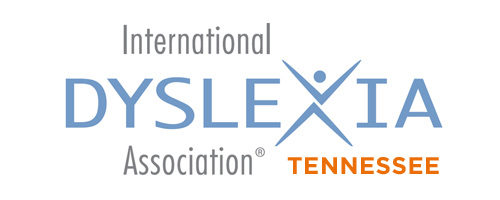
Do I Have Dyslexia?
Dyslexia is very common and up to 20% of people have symptoms of dyslexia. Dyslexia is often referred to as a “hidden disability.” It is not a disease and it cannot be diagnosed in the same way that a medical condition is determined. There is no blood test or medical scan that determines dyslexia and a diagnosis is the determination of a qualified professional. Though commonly considered a childhood disorder, dyslexia can be screened/diagnosed in adults as well.
SCREENING vs. DIAGNOSTIC Assessment
The purpose of screening for dyslexia risk is very different from the purpose of diagnosing dyslexia, but both have value. Regardless if you do a screening or a formal diagnostic, the first step toward helping with reading difficulty is to identify areas of struggle.
-
- A screening is generally a short, informal test which is used to determine whether further intervention may be needed. Screening for risk of dyslexia may be undertaken at an early age before school entry.
- Diagnostic assessment, diagnosis or identification of dyslexia requires a more comprehensive, time consuming, and (often) expensive evaluation and should only be done and interpreted through the judgement of an experienced and appropriately qualified professional. Also note that parents will often do both a school evaluation and a private evaluation.
Screening…
There is no single score or test that can determine if you have dyslexia. Qualified evaluators can administer a range of developmentally appropriate measures to determine your literacy strengths and weaknesses. The patterns can then be analyzed to determine if they are consistent with dyslexia. Tennessee public schools must screen students for characteristics of dyslexia in order to identify students in need of dyslexia-specific intervention. Information about those screening procedures can be found here:
- Dyslexia Resource Guide
- Dyslexia Overview for Parents
- School Based Identification of Characteristics of Dyslexia
Free Resources for Parents | Self-Assessment
There are a number of free screening tools available to help you determine whether a child has risk factors of dyslexia. If you suspect a child has dyslexia and may need further evaluation, speak with the teacher, special education administrator and school counselor at the child’s school, consult with a psychologist, or reach out to your state’s International Dyslexia Association branch for assistance.
| Universal Screening: K–2 Reading
Share This: For a downloadable PDF, click here. This fact sheet focuses on the importance of universal screening in the primary grades to identify students who are in need of reading intervention. What are the purposes for different types of assessment? Assessment can have multiple purposes: Universal Screening- to determine a student’s risk for … Continue reading |
DIAGNOSTIC ASSESSMENT / EVALUATION
A number of professionals have the training and experience to evaluate individuals for dyslexia. They include psychologists (school psychologists, educational psychologists, neuropsychologists), developmental-behavioral pediatricians, child neurologists, reading specialists and, especially in very young children, speech pathologists.
An evaluation will help determine your strengths and weaknesses and determine if dyslexia is involved. The first step should be a good comprehensive assessment of both spoken and written language skills. See Importance of Evaluation by IDA. The person you choose to do this evaluation needs to have expertise in the area of dyslexia. They should test the following areas (per the Testing and Evaluation by IDA)
|
|
|
|
|
|
|
|
|
*Current regulations no longer require that Intelligence be evaluated. This change in the regulations came about because many studies have shown that intelligence is not the best predictor of how easily a student will develop written language (reading and spelling) skills.
Per IDA…A comprehensive evaluation typically includes receptive (listening) and expressive language skills, phonological skills including phonemic awareness, and also a student’s ability to rapidly name letters and numbers. A student’s ability to read lists of words in isolation, as well as words in context, should also be assessed. If a profile emerges that is characteristic of readers with dyslexia, an individualized intervention plan should be developed, which should include appropriate accommodations, such as extended time. The testing can be conducted by trained school or outside specialists. (See the Dyslexia Assessment Fact Sheet for more information.)
You should receive a very thorough report. Once you have this report, you can go back to the school to discuss a review of services and insist it is placed in the student’s educational record. If the testing is done correctly, it is very difficult to repudiate these evaluations.
Please check your local listings for qualified professionals and/or refer to our list below.
Share this page with your friends…

